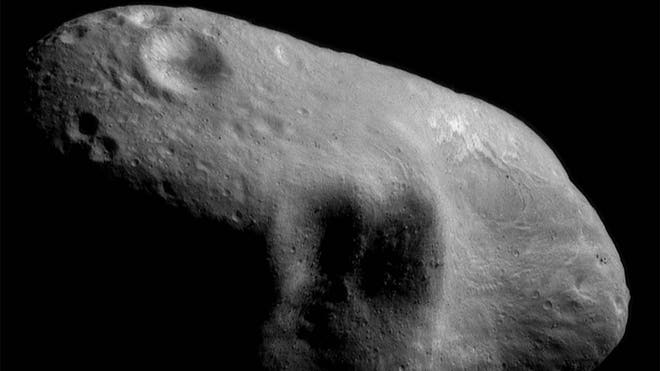The images were obtained by scientists at this Puerto Rican observatory - which has the largest, most sensitive single-dish radio telescope in the world - on Tuesday, July 14, when the asteroid passed by at some 6.9 million kilometers (4.3 million miles) from Earth, or nine time the distance from this planet to the moon.
Many of the asteroids observed up to now appear to be numerous small stones weakly held together by gravity, the observatory said in a communique.
However, Asteroid 2011 UW158 has "an odd shape much like an unshelled walnut" and with a diameter of 300 by 600 meters (1,000 by 2,000 feet), almost twice the size of the reflector of this observatory's radio telescope.
The scientists working there were also able to confirm that the asteroid "rotates very rapidly, once every 37 minutes" as in previous optical observations.
While many scientists were watching the historic flight of the New Horizons spacecraft past the dwarf planet Pluto, those at the Arecibo observatory said they were observing this object, very small and much closer, as it passed by Earth.
"We expect that something this big should have been shattered into smaller pieces by collisions with other asteroids over the age of the Solar System. It is interesting that something this large and apparently solid is still around," scientist Patrick Taylor, of the Planetary Studies Department and leader of these observations, said.
He added that this asteroid will pass relatively close to Earth again in the year 2108, but will not represent any danger.

Asteroid spotted in Puerto Rico awes scientists for its shape and tremendous speed
No comments:
Post a Comment